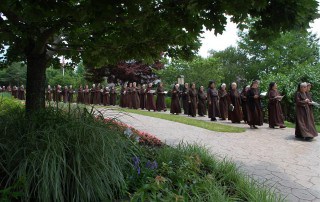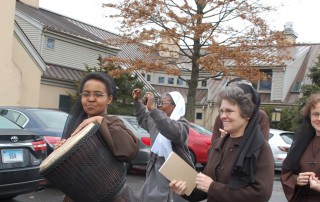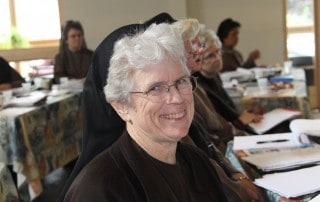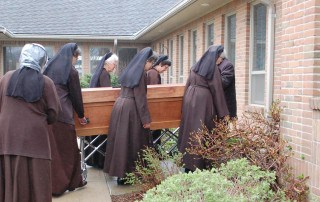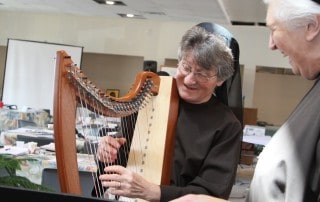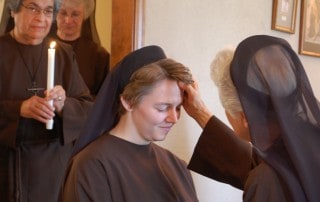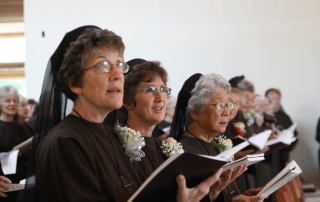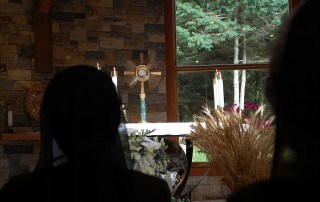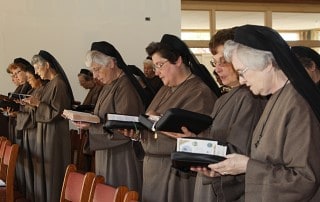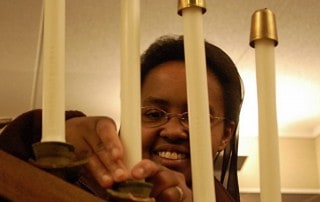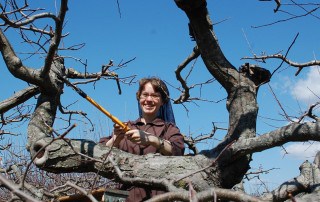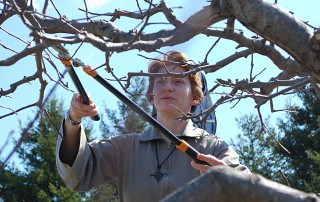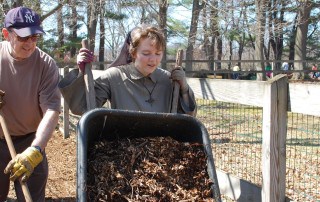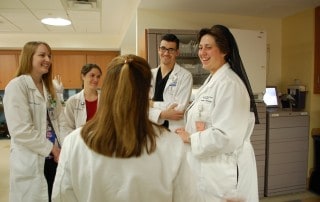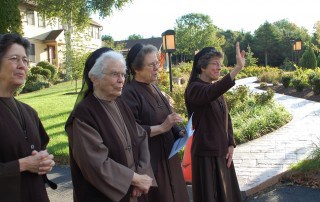One Body
Community life has been at the heart of our religious life since our founding. We pray and work together, share meals and household tasks, decisions and hopes, and in living closely with our Sisters, we share our joys and sufferings. The rhythm of our day is built around our community life.
The three evangelical counsels of chastity, poverty and obedience are professed as vows by each Sister. Together, they form the basis for living a life of radical consecration to God in community for the good of the Church.
The vow of chastity freely releases the human capacity of love in its fullness and is marked by aliveness and a spirit of joy. The vow of poverty frees the Sister to dispossess her possessions in order to grow into a deep inner spirit of poverty. In living the vow, the Sister depends on the Community for her needs as all things are held in common. The vow of obedience frees the Sister to do the will of God as expressed by her superiors, who, as authors of life, seek always what is best for the Sister and for the Community as a whole.
Sisters participate daily in the Mass where we are strengthened for our Eucharistic mission and join the universal Church in prayer for the world.
Every center schedules hours of adoration of the Blessed Sacrament either daily or weekly, as well as special holy hours for feast days. These hours spent in the presence of Christ in the Eucharist are precious times for personal and corporate encounter with the living Christ who penetrates hearts with His love and constantly calls His Bride the Church to closer union. As women of the Church, we hold in prayer the needs of many persons and their concerns, sufferings and struggles. In the quiet of adoration, we place all these into the ever-loving embrace of the Bridegroom, Christ.
In every local Community, prayer together marks the beginning and closing of each day as the Sisters pray the Liturgy of the Hours in common. Other forms of daily prayer include the rosary, meditation, spiritual reading, and prayer before and after meals.
Saint Francis instructed his Brothers, “I worked with my hands, and I still desire to work; and I earnestly desire all brothers to give themselves to honest work.”
In the spirit of Saint Francis, we see manual work as an opportunity to be co-creators with God in making the world a more ordered place. It is an opportunity to engage with creation in challenging, productive and energetic ways so as to become more human, as Pope John Paul II teaches in his encyclical “On Human Work.” Work provides a setting for the release of physical and emotional energy and for collaborating with others in creative, relational ways to solve problems, to create something new, to bring disorder into order or to enjoy the rewarding process of cleaning up a particular mess.
The Sisters are practiced in making hard work a normal part of our religious life. Not only is manual labor important, but professional and intellectual work is valued as critical to our apostolic efforts. Sisters are trained professionally for the works they are involved in and are expected to keep current with trends, events and research in their fields.

